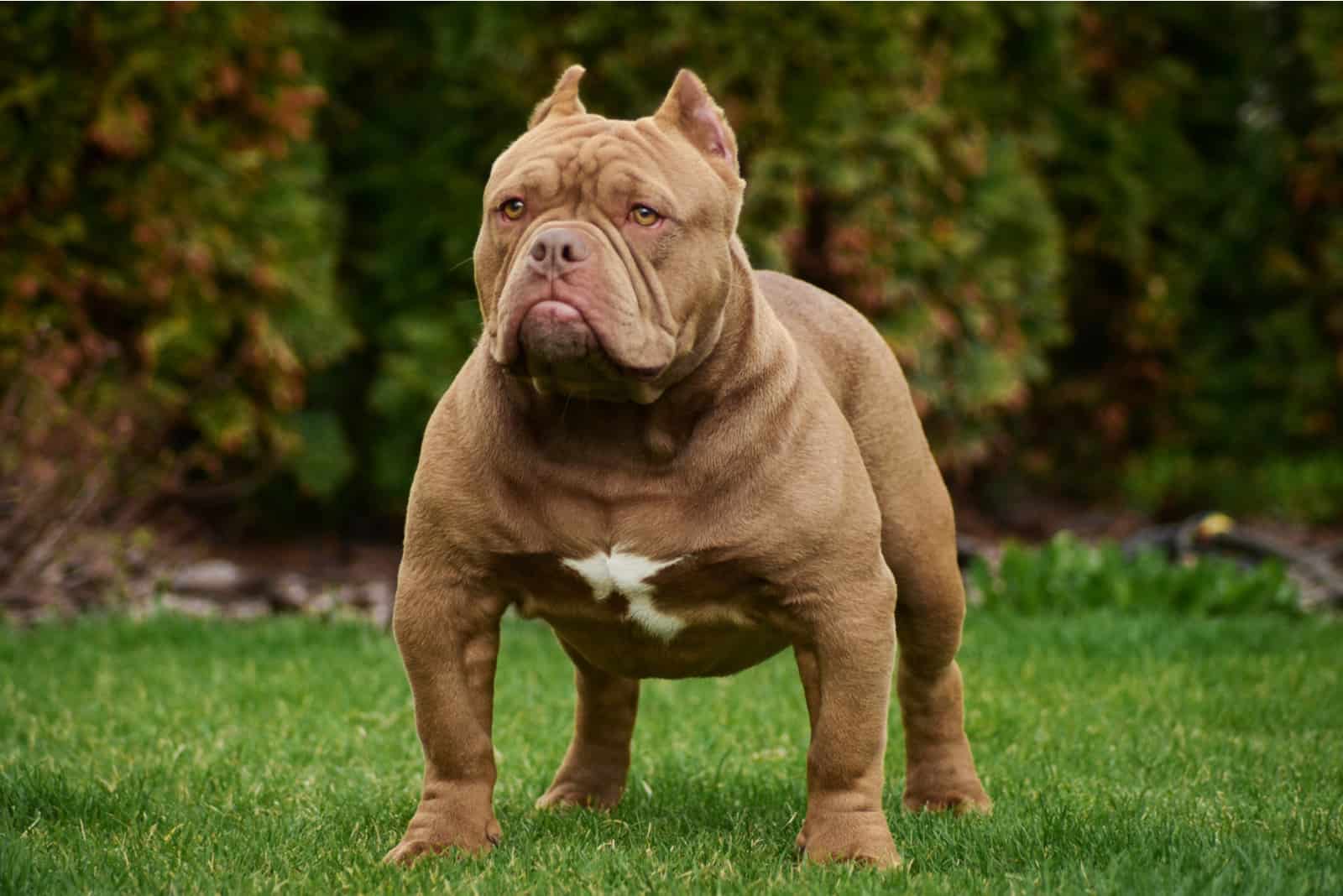Let’s talk about Bully breeding. Whether you’re a proud Bully dog owner or a Bully breeder in making, it is essential that you know a thing or two about Bully breeding.
So, why does Bully breeding get more recognition than breeding any other dog breed? Well, it is because Bully breeds have a bad reputation that is directly linked to the way they were originally bred.
In this article, we are going to talk about what dog breeds are considered Bully breeds, for what purpose they’ve been bred, and how to properly breed Bullies.
We are also adding some extra information about these wonderful dog breeds and a few fun facts here and there. Stick around if you want to know more about Bully breeding!
What Is Bully Breeding?
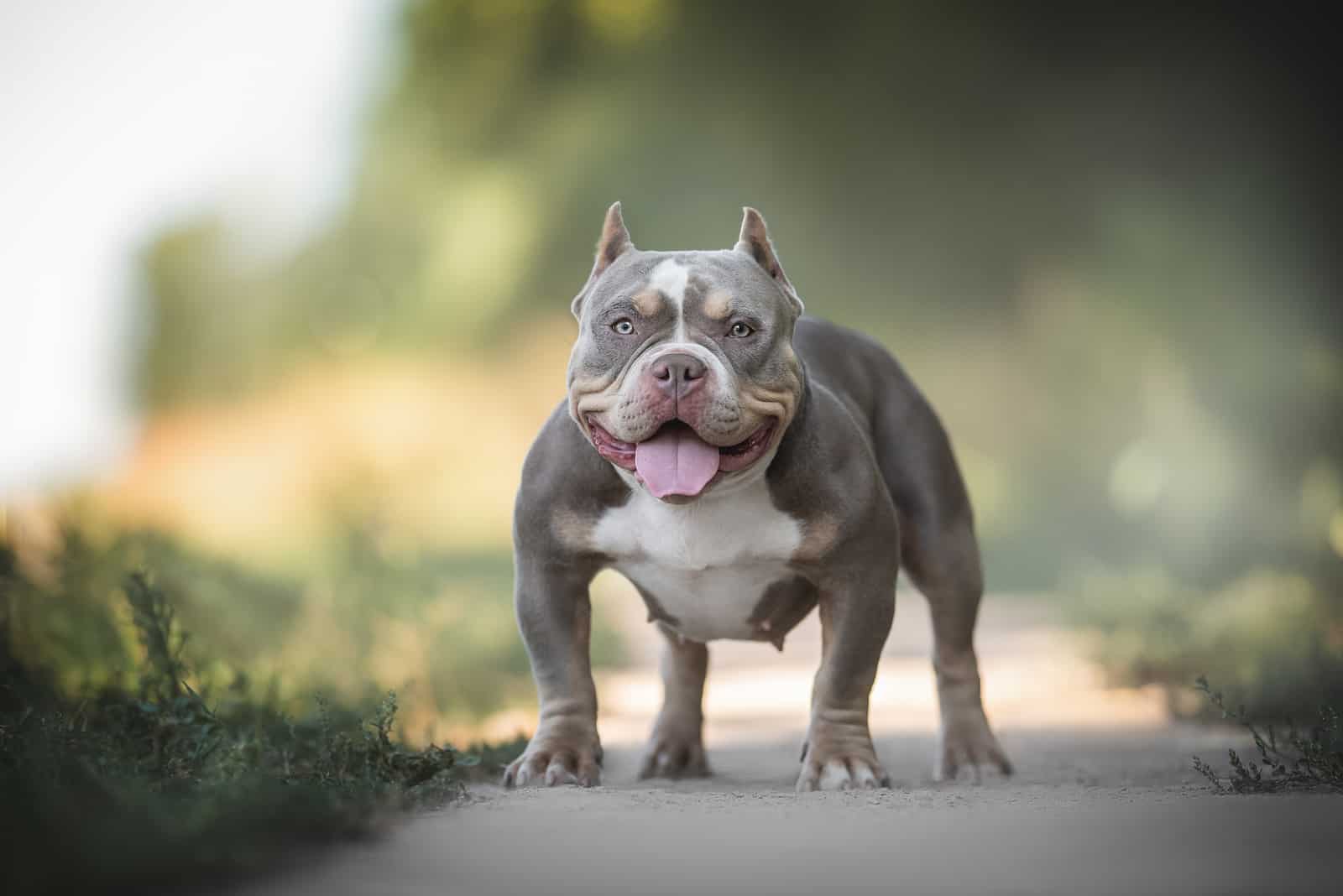
Let’s start with the basics — what is Bully breeding? As simple as it sounds, Bully breeding refers to the development of one or more Bully dog breeds.
The Bully breeding process is complex and requires a lot of knowledge and experience. That said, beginner Bully breeders usually take notes from experienced ones.
Although a Bully dog lover can wake up one day and say “Today I am going to start breeding Bullies!”, they should take some time to think about it.
Bully breeding should not be done just because a dog owner wants puppies. Instead, breeding Bully dogs should be done in a matter of preserving the breeds and developing more favorable traits.
Let’s not forget that almost all Bully breeds are followed by a bad reputation of being aggressive dog breeds. Good Bully breeding can undoubtedly change that.
What Are Bully Dog Breeds?
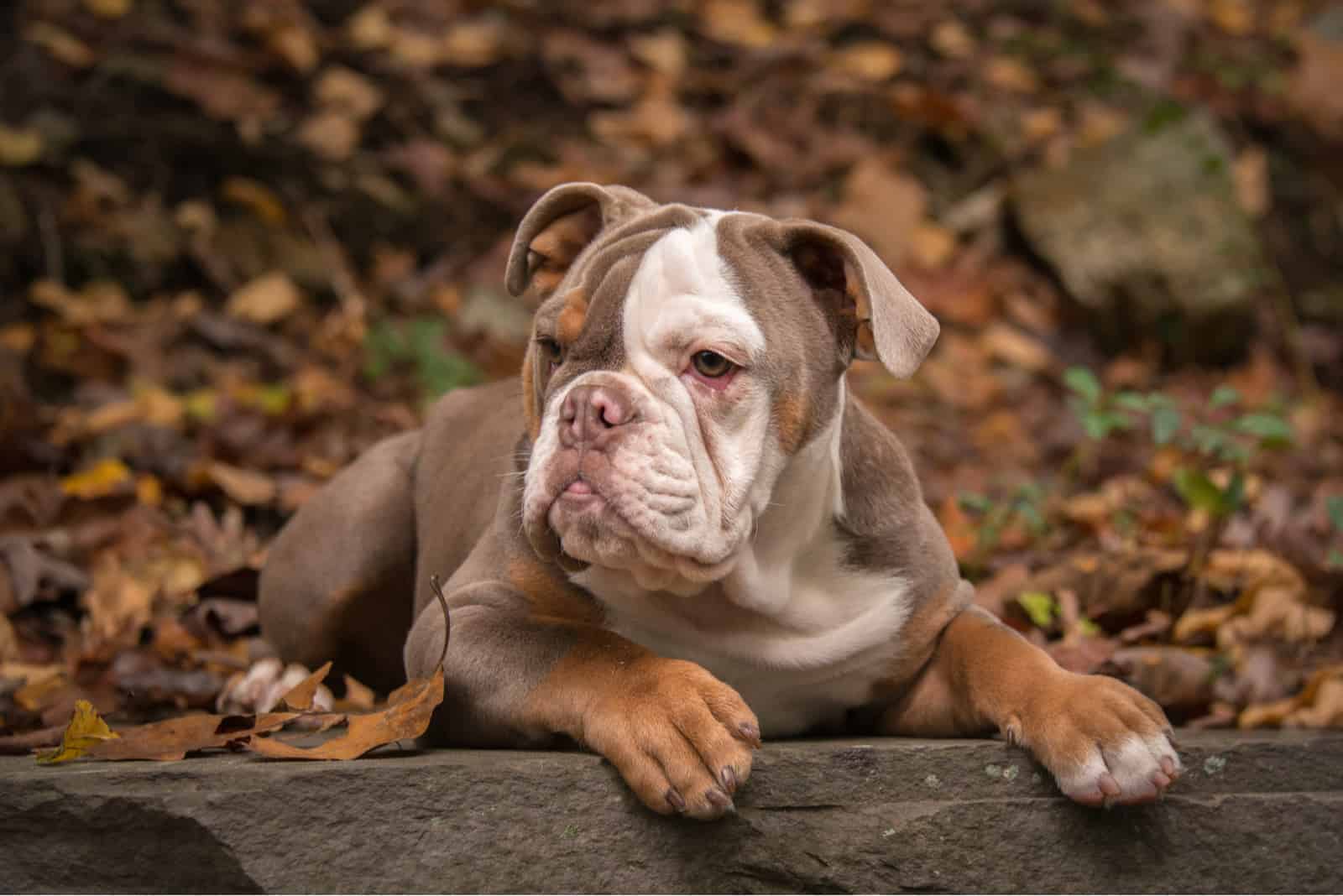
A “Bully dog” is not a single dog breed. Bully dogs fall under a wide category of canines that have similar physical traits, but all are different.
The most famous Bully dogs are the American Bully and the English Bulldog, and both have the word “bull” in their name. But, those two are not the only known Bully dog breeds.
We did our research and brought you these dog breeds that are widely recognized as Bully dog breeds:
1. American Bulldog
2. American Pit Bull Terrier
3. American Staffordshire Terrier
4. Boston Terrier
5. Boxer
6. Bull Mastiff
7. Bull Terrier
9. Cane Corso Italiano
10. French Bulldog
So, you may notice that all of these Bully dog breeds look similar, yet so different. Here’s a fun fact — all eight of Bully dog breeds are developed from ancient Greek Molossoid dog breeds, also known as the Molossers.
I mean, their name sounds pretty powerful, so we can only imagine how majestic these dogs were. Actually, there is no need to imagine the Molosser dogs, we already have these Bully breeds to admire!
What 2 Breeds Make A Bully?
As we previously mentioned the Bully dog is a descendant from the ancient Molosser dog, but let’s go into a more recent history. Every Bully dog that we know today is an offspring of the early Bulldog, known as the Old English Bulldog whose development dates back to the 13th century.
But, several British Terrier dogs as well as Mastiff-type dogs were crossed with purebred Bulldogs to develop more Bully breeds. Having said that, modern Bully breeds have Old English Bulldog, Mastiff, Olde English Bulldogge, and British Terrier genes.
Combining genes from such strong and powerful dog breeds created the incredible Bully dog. Each example of Bully dog breeds shows outstanding agility, alertness, strength, and speed.
Although these traits are favorable and positive for each Bully dog to inherit, throughout history, unethical breeders and owners have taken advantage of these wonderful dogs.
What Were Bullies Bred For?
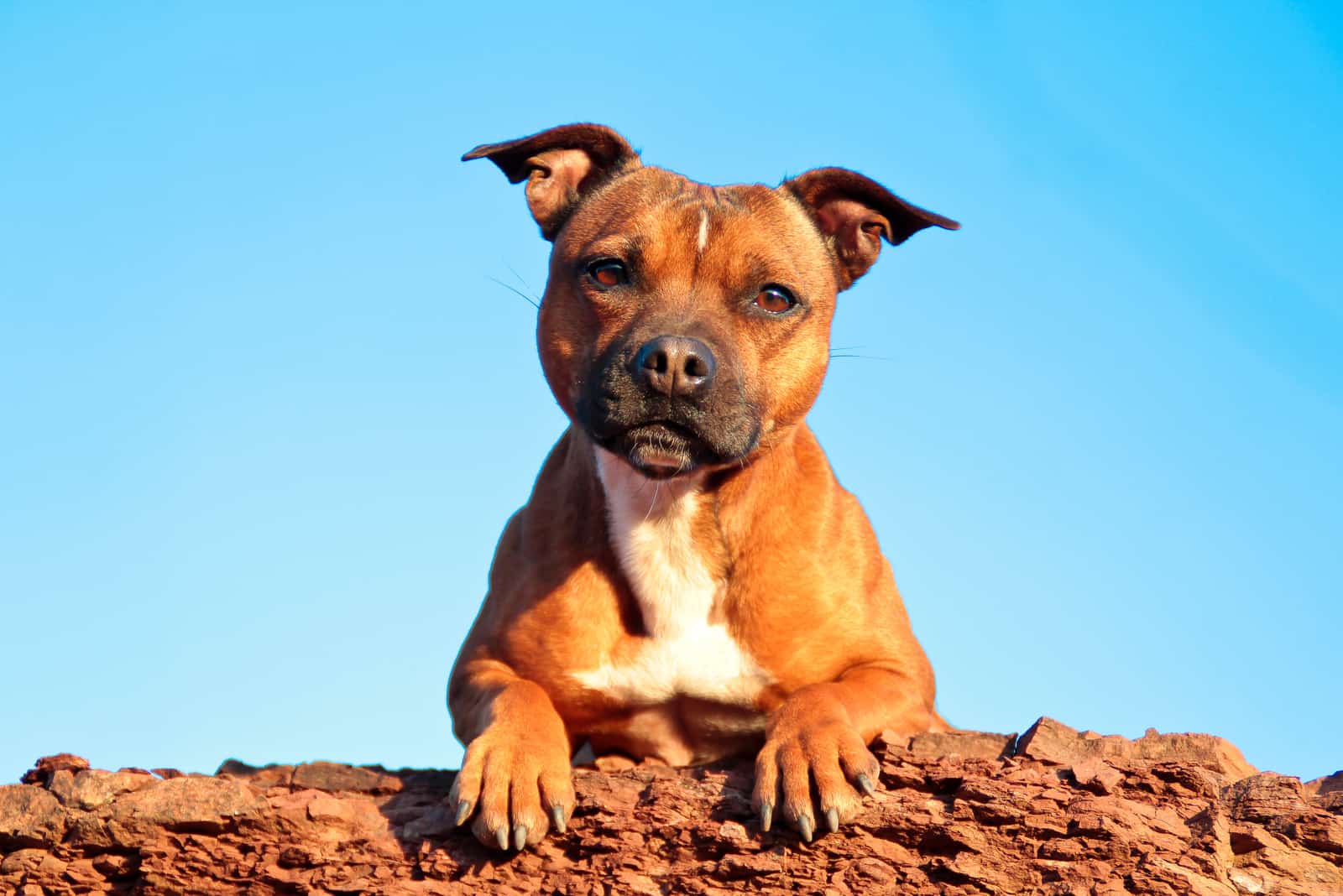
Originally, Bully breeds were bred for protection of property and livestock. Bully breeds showed remarkable dedication and loyalty towards their owners, and their guarding skills were spot-on!
Every Bully dog is built to endure jobs that require strength and agility. This is what got them into guarding people, other animals, and property. But, this is also what got the Bully breed involved in gruesome “sports” such as bull-baiting, hence the “bull” in their names.
Even though bull-baiting got canceled and forbidden by the law, some unethical owners and breeders pushed Bully dogs into bloody dog fighting events.
Since then, the Bully dog’s reputation of being an excellent guardian and family dog was smudged and soon, the wonderful Bully breed was labeled as aggressive and hostile.
Bully breeding started off as a great idea that showed incredible results, but soon turned into something that none of us like to think about. And it is all because of unethical Bully owners and breeders that trained Bully dogs to fight and be aggressive, rather than properly socialized them into being wonderful family companions.
What Are The Bully Breed Colors?
If we are going to talk about each Bully dog breed, then we wouldn’t finish naming all the coat colors until tomorrow!
We may start at various Pit Bull colors that come in over thirty shades and patterns. Each Pit Bull has a unique set of coat markings and patterns, and some come in only one solid color.
The Pit Bull dog breed features the popular American Bully dog that comes in similar coat colors as the purebred Pittie. But, the one that stands out the most is the blue American Bully that may cost a fortune!
Brindle coats can often be found in colorful Bull Terriers and Boxers. I would say that Boxer colors are famous for exhibiting the brindle, or as some call it “tiger stripes” pattern. There’s another Bully dog breed that looks extremely powerful with its various colors and brindle coating — the Bullmastiff.
Let’s not forget Frenchies that come in more than 25 coat colors that make their stocky bodies stand out amongst the crowd.
It is believed that most of these Bully dogs inherited their coat colors from English Bulldogs.
What Is The Difference Between An American Bully And A Pit Bull?
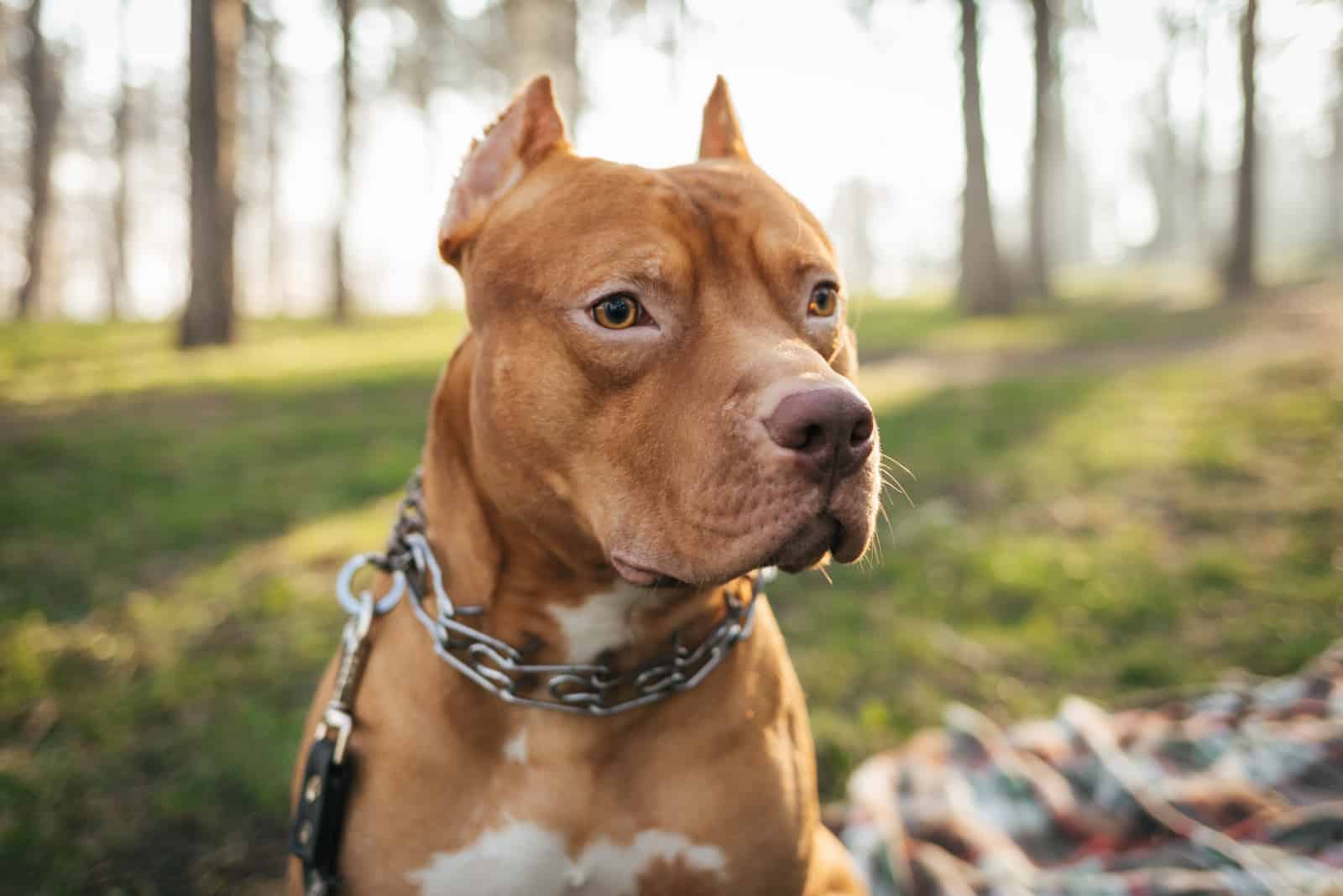
The two Bully breeds that share more similarities than the others, are the American Bully and the Pit Bull (American Pit Bull Terrier).
Due to the fact that there are many dog breeds that resemble the Pit Bull breed, many Bully enthusiasts often confuse one for another. So, we decided to name a few differences between the American Bully and the Pit Bull.
Firstly, American Pit Bull Terriers and American Bully dogs are close cousins!
They both need an experienced owner, and with proper training, both Bully breeds may make excellent partners.
Body Structure
Both Bully breeds inherit strong and athletic bodies that feature broadhead structure and strong jaws.
American Bully dogs are stockier and more muscular than purebred Pit Bulls. Their bulky bodies along with broad head and wide chest make American Bully dogs appear shorter than Pit Bulls.
Size
The biggest and most obvious difference is in their physical appearance and body structure.
According to the Pit Bull growth chart, Pitties are medium-sized canines. When they reach adulthood, American Pit Bull Terriers weigh between 30 and 70 pounds and stand between 18 and 22 inches tall.
The American Bully growth chart shows rather different measurements. The American Bully dog can reach anywhere from 50 and 120 pounds of weight, which makes it heavier and stockier than its Pit Bull cousin. The American Bully dog appears shorter than male and female Pit Bulls. When full-grown, the American Bully dog measures 16 to 20 inches at withers.
Moreover, there are several American Bully dog sizes (four classes) that also make them different from Pit Bulls that usually come in one size.
American Bully Classes
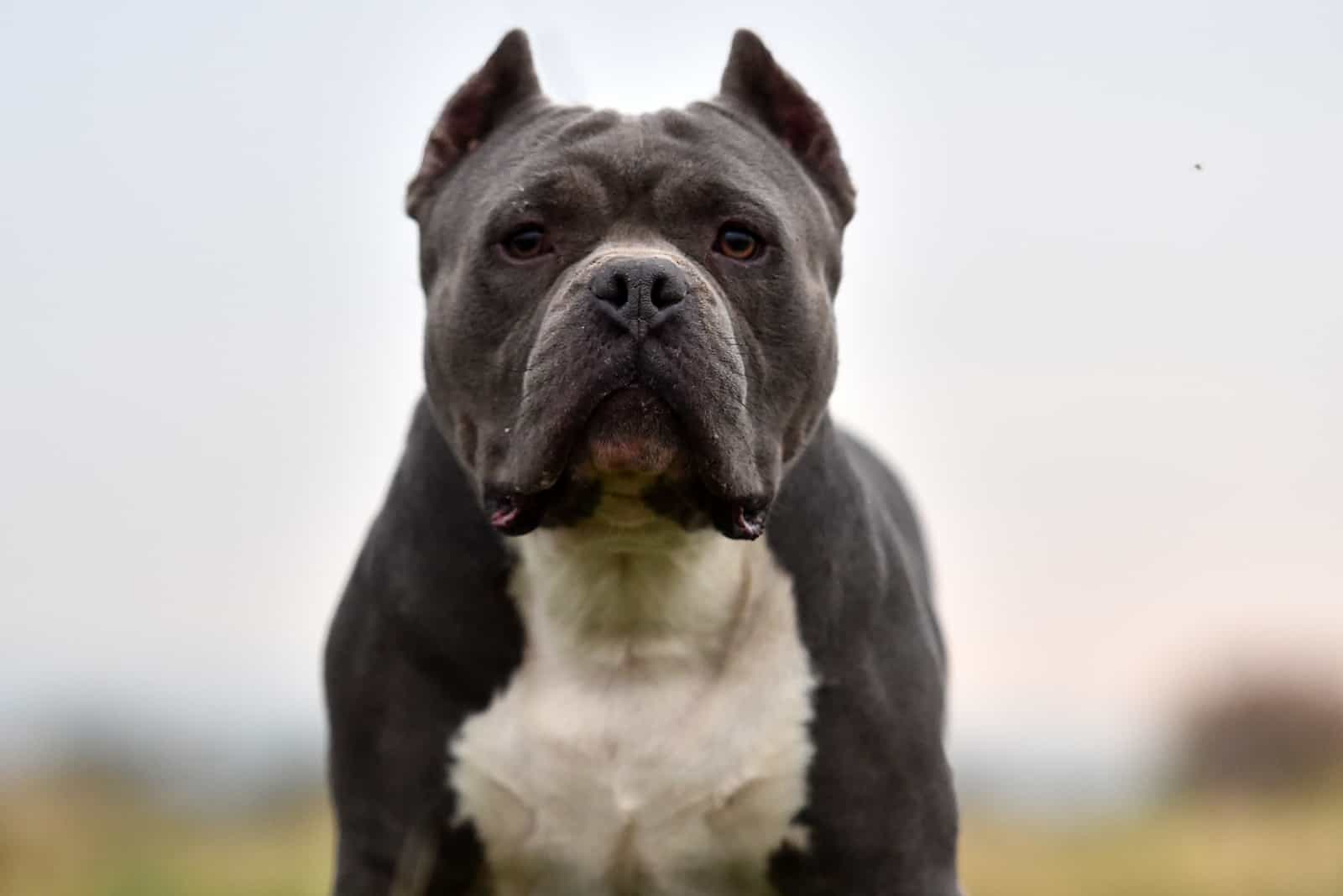
We would like to focus more on the American Bully breed because nowadays this Bully breed is the most sought after. Having said that, most aspiring dog breeders are looking for the best ways to breed American Bully dogs.
In order to talk about Bully breeding, we ought to mention the five American Bully dog breed classes that are described by the American Bully Kennel Club (ABKC).
1. American Pocket Bully
The American Pocket Bully may sound like a small dog, but this “micro” Bully inherits a muscular body just like its bigger canine cousins.
Most Pocket Bullies are developed by crossing the purebred American Bully with the purebred Patterdale Terrier.
The Patterdale Terrier is smaller in size, which contributes to the American Pocket Bully’s growth.
Standing between 12-16 inches tall and reaching a maximum of 22 pounds in weight, the American Pocket Bully is the most popular and most sought after ABKC Bully type.
Due to the fact that Pocket Bullies are smaller than the rest, the breeding procedure requires more caution and proper foundation dog selection.
This is why Pocket Bully breeders are always busy with developing the best breeding programs. Breeding Pocket Bullies insists on time and dedication, as well as knowledge and experience.
2. Standard American Bully
Moving on to the standard American Bully that is also a popular Bully type in the U.S.
Compared to the Pocket Bully, Standard American Bully is larger and inherits more muscle mass. Standard American Bully’s size and physique depend on the foundation dogs and the quality of the Bully breeding program.
That means that both Standard American Bully genders can be either medium or large dogs. These dogs usually grow between 19 to 22 inches tall.
3. Classic American Bully
The Classic American Bully dog looks a lot like the Standard American Bully, except that it is a bit lighter. In other words, the Classic American Bully inherits a lighter framework and leaner muscles.
The Classic American Bully class is also very popular in the U.S., because its lighter body makes it a great companion dog for those who are looking for a less bulky Bully.
But, don’t be fooled, the Classic American Bully dog still features the classic Bully breed characteristics.
Although its body inherits a less muscular body than the Standard American Bully the Classic Bully is still a powerful and strong canine.
4. XL American Bully
The XL American Bully is the largest of all official ABKC bully classes — it is both heavier and taller. As its name implies, the XL American Bully is a large dog that stands up to 23 inches at the withers, while it can weigh up to 150 pounds.
The thing about XL Bullies is that their bodies are wider and more muscular than any other Bully type. You can almost see every muscle on its broad chest and bulky legs. Some breeders even call them the XXL Bullies!
ABKC shows four Bully types, with an additional unclassified American Bully type that is often called the Exotic Bully.
When compared to other Bully classes, the Exotic Bully inherits a more muscular body with strong bone structure. Such build broadens the Exotic Bully’s chest and makes it look a bit shorter than the rest.
When Can I Start Breeding My American Bully?
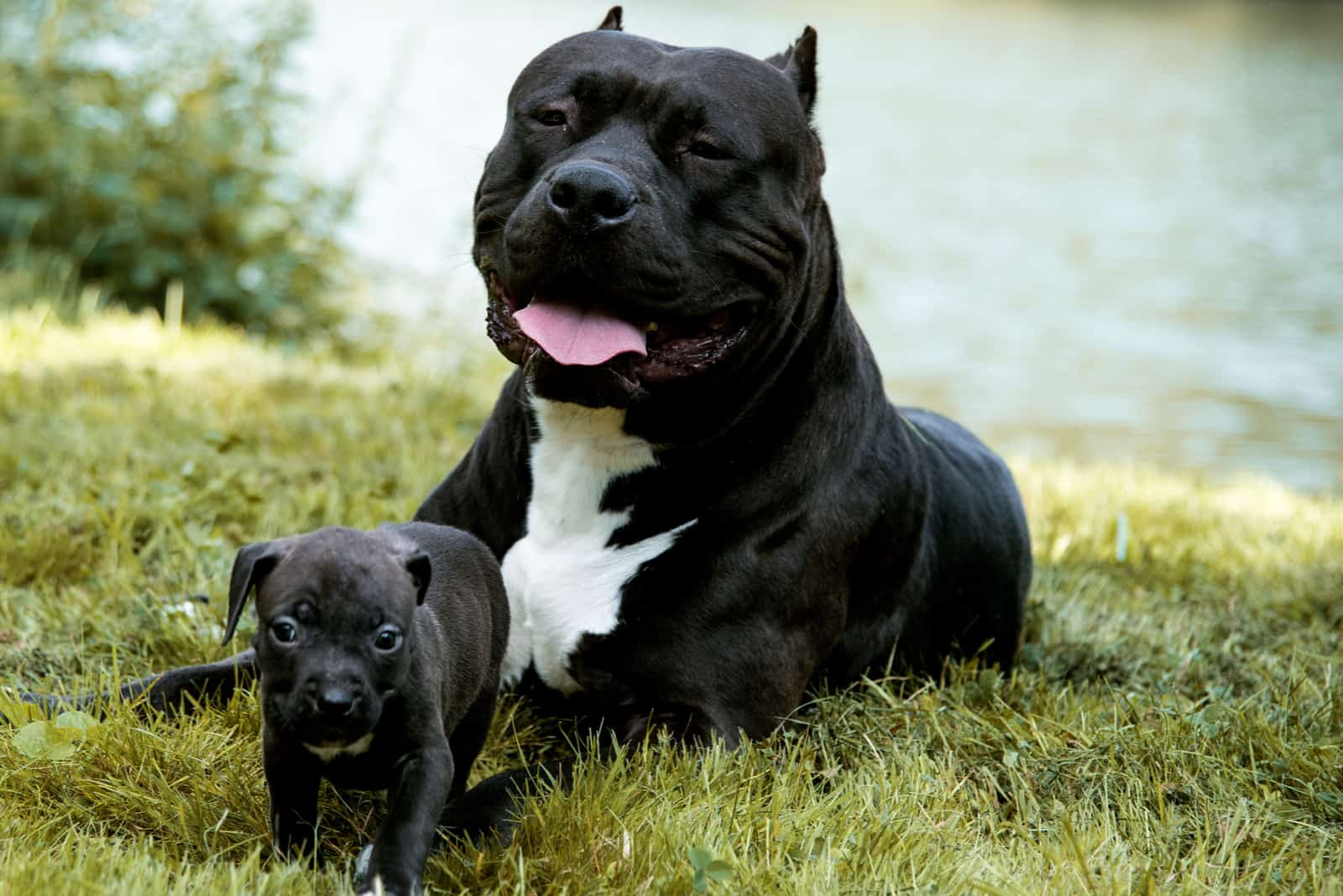
Two things will determine when you can start breeding your American Bully dog — your dog’s heat cycle and your knowledge.
You can’t just run around with your Bully without knowing anything about Bully breeding! But, don’t worry, we’re taking this one step at a time.
In case you own a female American Bully dog, you will have to wait for the right time. This means that you will have to pay attention to your American Bully female dog’s heat cycle.
To make it simple, here is when female and male American Bully dogs are ready to starts breeding:
• Female American Bully dogs — It takes six months for female American Bullies to show signs of their first heat. This does not mean that they are sexually mature at the age of six months. Additionally, female Bullies are not fully developed at six months of age. Therefore, it is best to breed your female Bully once she reaches her first year of life. Even then, if the female American Bully is not fully mature, you might as well wait until two years of age.
• Male American Bully dogs — Breeding male American Bully dogs can be done when they are between six and twelve months old. However, professional veterinarians and responsible American Bully breeders suggest waiting until your male American Bully is one year old.
Female American Bully Dog Heat Cycle
You can expect the American Bully’s heat cycle to last anywhere from two to four weeks. However, this does not mean that the female Bully is equally fertile during the span of four weeks. The high fertility period lasts for only five days, and that is the perfect time for a female American Bully dog to mate.
So, how do I know when those five days occur during the heat cycle?
Well, this is usually estimated to be 10-14 days after the female Bully’s first day of heat. But, this is only an estimated time, not entirely accurate.
This is why many professional American Bully breeders opt for progesterone testing which is the only accurate way to determine the female American Bully heat cycle.
Male American Bully Dog Mating Season
If you own a male American Bully dog, you can offer stud service to other American Bully breeders if your dog is backed with a decent pedigree and if it is health tested against genetic diseases. Of course, you will have to wait for your male dog to show signs that he wants to mate.
There is no “heat cycle” in male dogs, so male American Bullies don’t go through the whole “two to four weeks” process. Instead, male American Bully dogs develop the urge to mate when their female counterparts are in heat.
Female American Bullies leave pheromones wherever they go, which act as signals for male Bullies to take action.
This means that male American Bully stud dogs can mate at any moment, given that the female dog is present. Intact senior Bully stud dogs stay fertile and remain sexually active if their health is kept in tip-top condition.
When Can American Bullies Have Puppies?
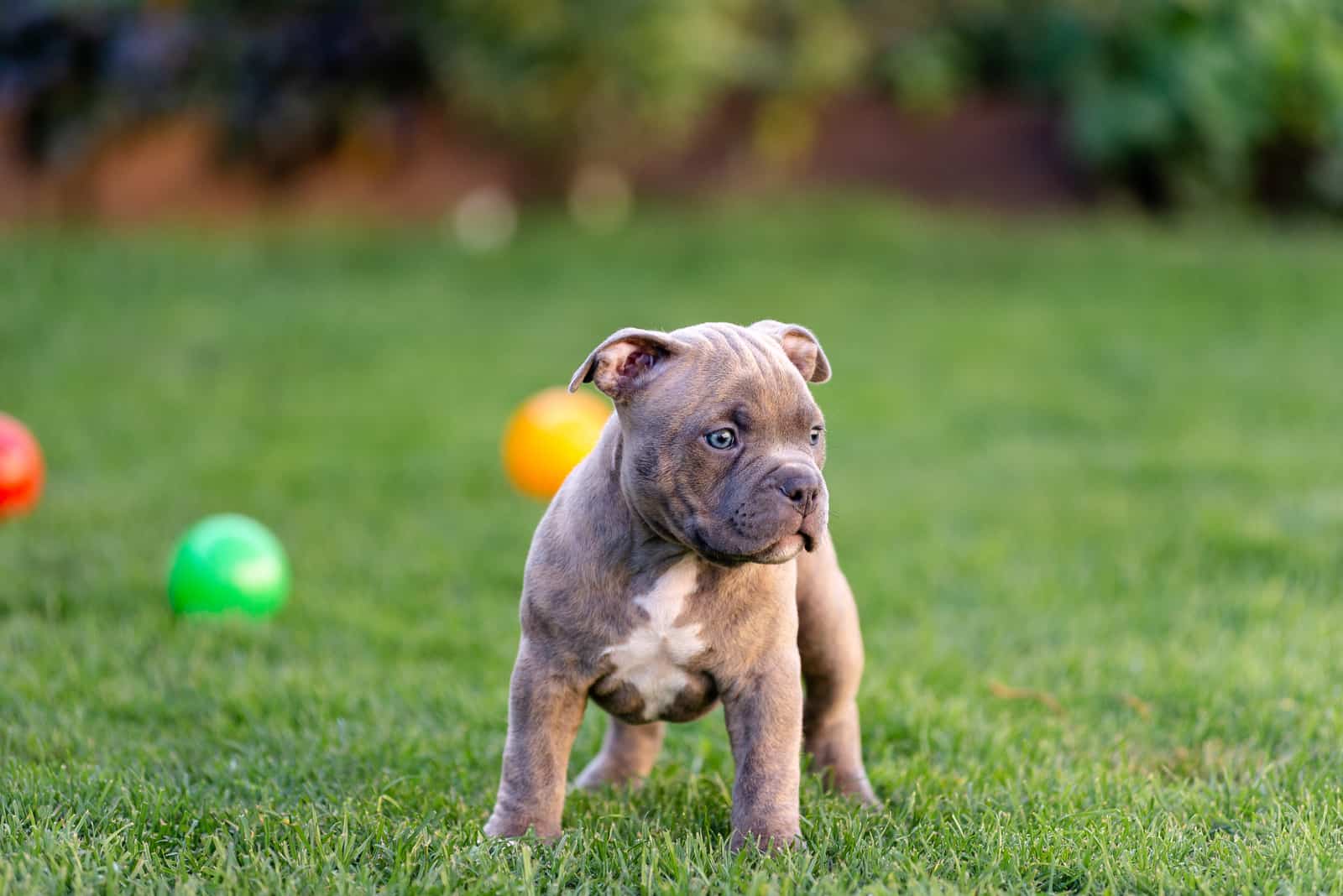
Before having her first litter of puppies, responsible American Bully breeders advise waiting until the female Bully is at least two years old. It is not a good idea to breed a young American Bully dog nor is it good to breed a senior American Bully female.
This is why many veterinarians and Bully breeders recommend breeding American Bullies in their optimum life stage — between two and five years of age.
Although it is relatively easy for a female American Bully to become pregnant, it is essential to know about her health status, reproductive history, and medical history. Same goes for male American Bullies.
Just because a female Bully dog gets into heat doesn’t mean that it can start mating after the initial signs of heat. The period between first signs of heat and mating in American Bullies is between nine and 11 days.
How Many Puppies Does A Bully Have?
Depending on the ABKC class, the American Bully dog can carry between four and eight puppies. Pitbulls, on the other hand usually carry five puppies per litter.
What about French Bulldogs, how many puppies can a Frenchie have? Well, when it comes to these small dogs, they usually have one or up to three puppies per litter. Everything above is considered dangerous.
Other Bully breeds like the Boxer and Cane Corso have litters of five to seven puppies.
You see, there are a few differences between each Bully dog breed and its litter size, but it all comes down to four puppies per litter on average. This is a typical litter size for any medium-sized dog.
How Long Do Bullies Stay Pregnant?
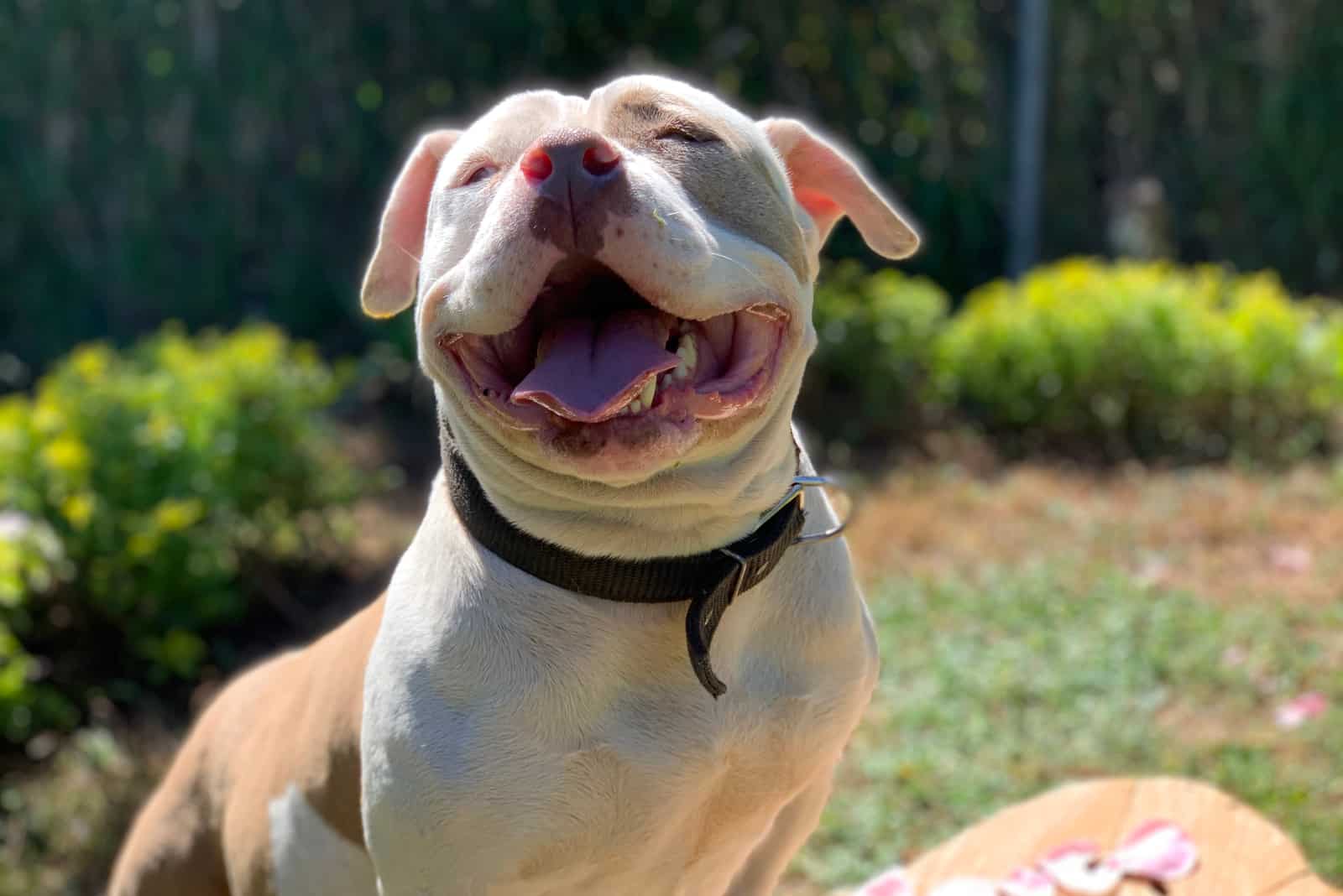
The pregnancy period for all female dogs is roughly 63 days (also known as gestation period). So, female Bully dogs carry their puppies around 62 to 64 days.
However, this number normally varies. Gestation period in female Bully dogs can range between 58 to 68 days. To determine whether your female American Bully dog is pregnant or not, you can look for pregnancy signs and ask your veterinarian during a health-check.
During the last few days of pregnancy, female dogs start showing signs of going into labor soon.
Reputable Bully breeders that have been into serious breeding business recommend learning about stages of pregnancy in female dogs. Monitoring and taking care of your female foundation dog are two extremely important factors in the breeding process.
How long a Bully will stay pregnant depends on the age and health status of the female dog, as well as the litter size, quality of breeding program, and stud service.
How Often Do American Bullies Get Pregnant?
The heat cycle in female American Bully dogs repeats every six months. However, just like the gestation period, the time between two heat cycles can vary. There are times when a female American Bully’s heat cycle is irregular, so it may take four to 12 months to appear again.
To put it simply, most female American Bully dogs can get pregnant two times per year (some even three). But, this doesn’t mean that female American Bully dogs should get pregnant that many times.
If you are serious about getting into the Bully breeding business, then you should be aware that quantity doesn’t mean quality. Overbreeding a female American Bully dog puts her and her puppies in danger.
Throughout her lifespan, a female American Bully dog can have between eight to ten litters. Again, this shouldn’t mean that she has to.
If you are careless, you run a serious chance of having a litter of undesired puppies. Fortunately, secure ways to avoid getting pregnant after mating.
As an ethical breeder, your top priority is to keep your female American Bully dog as healthy as she can be.
How Do You Breed American Bullies?
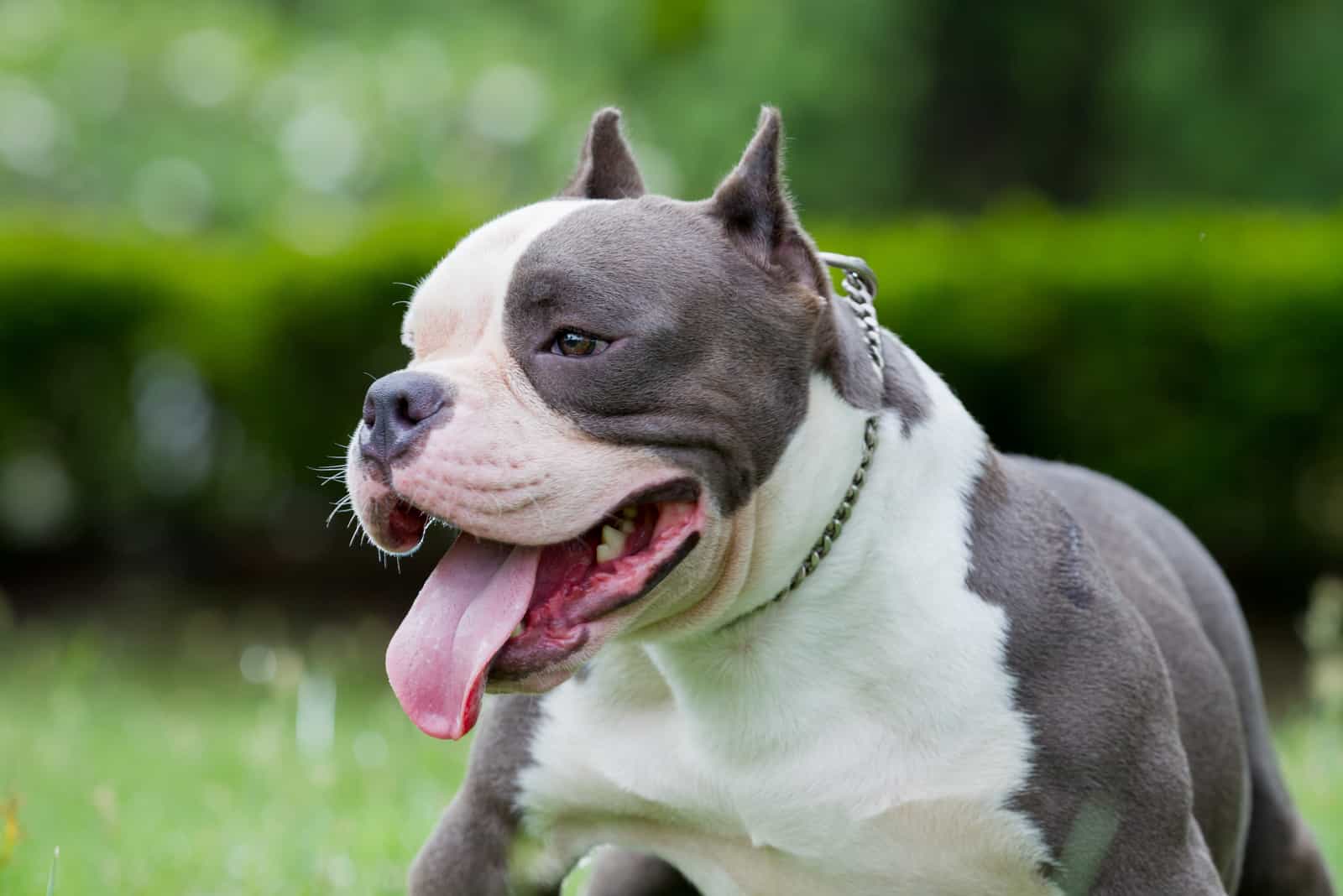
A few important factors must be considered before your female American Bully dog becomes pregnant.
Inform Yourself About The American Bully Dog Breed
American Bully owners already know a lot about this new breed. But, it takes a lot more knowledge to become an American Bully breeder. The difference between being an owner and a reputable American Bully breeder lies in the amount of knowledge!
The internet is your friend, so make sure to do a lot of research (just like you’re doing at the moment!) about the American Bully breed standard.
Helpful sources for the American Bully breed are magazines like the Bully King. Moreover, there are reputable kennel clubs such as the American Bully Kennel Club (ABKC) and the United Kennel Club (UKC) that can provide you with everything that there is to know about the Bully breed.
Due to the fact that the American Bully is a relatively new breed, there are many breeders that compete with each other to produce as many litters as they can in order to meet the market’s requests. But, this is wrong on so many levels.
Don’t be shy to ask reputable American Bully breeders for advice and do not think of them as competition. Responsible American Bully breeders work together to produce healthy dogs for the betterment of the breed.
Learn More About American Bully Genetics
There is no successful American Bully breeding without good genetics. In order to produce a quality American Bully bloodline, breeders take their Bullies for genetic testing.
There are several breed-specific genetic issues that can be tested for, and they frequently only require a blood or cheek swab sample.
Tests for elbow hip dysplasia, eyes, and the heart are frequently carried out in the American Bully breed.
Genetics is the foundation of each high-quality American Bully bloodline. Without proper knowledge of American Bully genetics, breeders can’t predict what kind of coat color their puppies are going to inherit nor which health issues are lurking behind faulty genes.
All purebred American Bully dogs that come from reputable breeders are backed with detailed pedigrees. Besides knowing about basic canine genetics, you should know how to correctly read a dog’s pedigree.
Learn More About Types Of Breeding
In dog breeding world, there are five types of breeding:
1. Inbreeding
2. Line breeding
3. Outcrossing
4. Backcrossing
5. Grading up
Each of these is different and is practiced in many breeding programs. Let’s define each type of Bully breeding.
Difference Between Inbreeding And Line Breeding
If you are getting into Bully breeding business, chances are that you have heard about line breeding and inbreeding. These two are opposite terms and it is necessary that you know the difference.
To make it short and simple, inbreeding is when brother and sister dogs have puppies. Or any other blood-related foundation dogs.
Line breeding is a type of inbreeding which involves distant canine relatives. We can label it as “specialized inbreeding”.
Both breeding practices are undesirable because they lead to a series of genetic illnesses and disorders. This means that both inbreeding and line breeding cause shorter lifespans of American Bully dogs.
Outcrossing In Bully Breeding
Outcrossing refers to “refreshing” the existing Bully bloodline with “new blood”, which means importing a new foundation dog into the breeding program.
Unlike inbreeding and line breeding, outcrossing doesn’t have anything to do with blood-related Bullies.
To put it simply, outcrossing is breeding two Bully dogs that do not have the same ancestor in the past four to six generations.
Backcrossing In Bully Breeding
Backcrossing refers to the mating of a designer dog with one of its parents. As far as I know, backcrossing is not as common in the American Bully breed as it is in other dog breeds.
Grading Up In Bully Breeding
As the name suggests, grading up means purchasing a high-quality Bully stud dog to cross with an average female Bully dog.
However, grading up is often done by mating the stud dog with a related female dog.
Choose An American Bully Class
If you are thinking about breeding American Bully dogs, you should choose one of the ABKC American Bully classes.
Reputable American Bully breeders usually breed one or two Bully types (pocket, standard, classic, or XL Bullies).
Vaccination And Health Check
Before beginning breeding, you should also get advice from your veterinarian, an experienced breeder, or the Kennel Club with whom your dog is registered regarding any screening or safety measures that are suggested for your particular breed of dog.
ABKC recommends having both American Bully male and female dogs microchipped, health and DNA tested and before breeding.
The advice that all vaccines be current for the duration of pregnancy and nursing (lactating) phase should be discussed with your veterinarian prior to mating your stud.
You should also wait to let your female Bully have puppies until she is completely grown and mature.
Before taking your female Bully dog for mating, it is a good idea to have your vet employ a set of progesterone blood tests to determine the ideal level of fertility.
Introducing Foundation Dogs
Both Bully dogs must maintain their composure if you want natural mating to occur.
If you introduce your female and male Bullies to one another before the mating day, chances are that the mating process will go smoother. Introducing your foundation dogs a day before mating will make it more likely that they will get along.
Remember, Bully dogs are less likely to mate if they are disturbed or anxious.
Mating
Once your foundation dogs meet and greet, they will indulge into playtime that will turn to mating. If this is the first time for one of the foundation dogs, there is a chance that it might take several tries for actual mating to occur. Having said that, American Bully mating could take up to an hour.
You have probably heard about the “lock” that happens during dog mating (or as some call it the “tie”). What happens here is that the bulbus glandis (part of male Bully dog’s penis) swells during penetration and prevents it from drawing out, leaving the pair “tied”.
Two mating canines frequently “tie” for up to an hour even if the actual ejaculation happens fast. They should both remain motionless during this period without attempting to leave.
It’s possible that the mating took place when the female Bully dog’s fertility was still below its peak, negating the likelihood that fertilization was successful. That said, fertilization may occur several days after mating since sperm can survive in the uterus for up to seven days.
In order to improve the likelihood that a pregnancy will occur, mating is frequently attempted twice, with a two-day gap between each try.
Taking Care Of Pregnant Female Bully
If you think that the breeding process ends with mating, then you are wrong! Taking care of your pregnant female Bully dog is probably the biggest challenge.
The pregnant female Bully needs all the attention and nutrition she can get. The Bully babies need nutrients to grow healthy in her womb!
The Bully feeding chart describes how much food a Bully dog needs to stay in optimal condition.
Besides nutritional food and a good feeding schedule, pregnant female Bully requires a healthy amount of exercise that will keep her body in good shape and help her to deliver puppies easier.
When Bully puppies are born, they must be with their mother until she decides to wean them off. Once they reach six weeks of age, you should start with an early socialization process.
Conclusion
Bully breeding is no simple task! It takes a lot of time, knowledge, and dedication to breed Bully dogs. Especially because these dog breeds are known to be ferocious and aggressive.
This can’t be further from the truth because all Bully owners and breeders agree that, with proper upbringing and socialization, Bully dogs make obedient and loyal family pets.
Besides early socialization and training, the most important part is proper Bully breeding.
Breeding healthy and good-natured foundation dogs gives birth to Bully puppies that inherit little to no health problems along with great personality and amazing looks!
Related Content
Dog Breeders In America: Meet 50 American Breeding Stars
Top 10 Staffordshire Bull Terrier Breeders In USA (2022 Edition)
